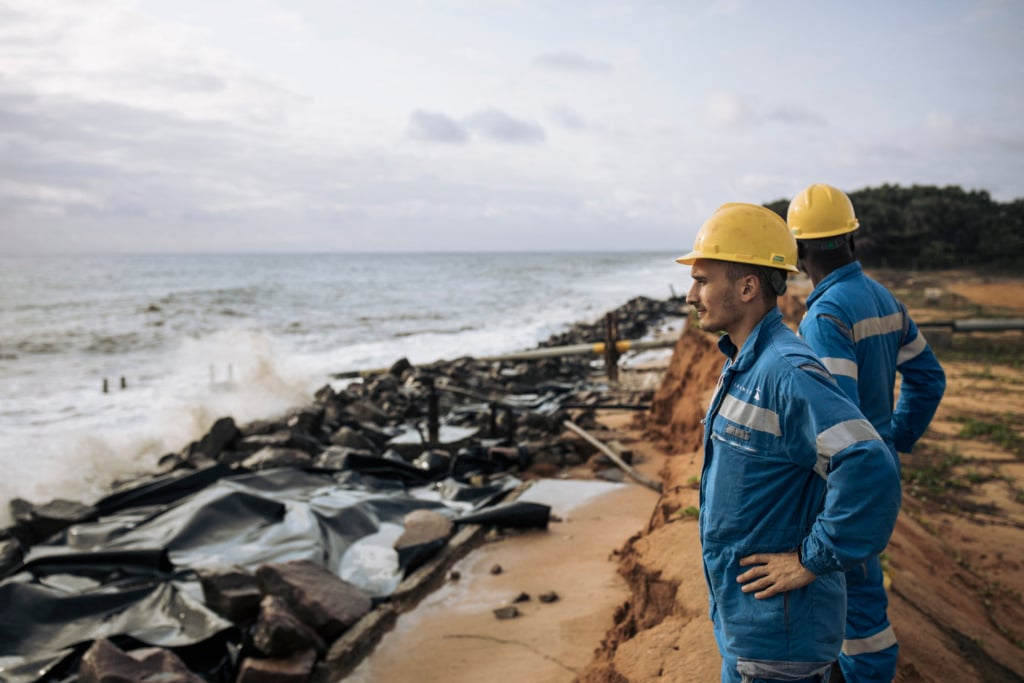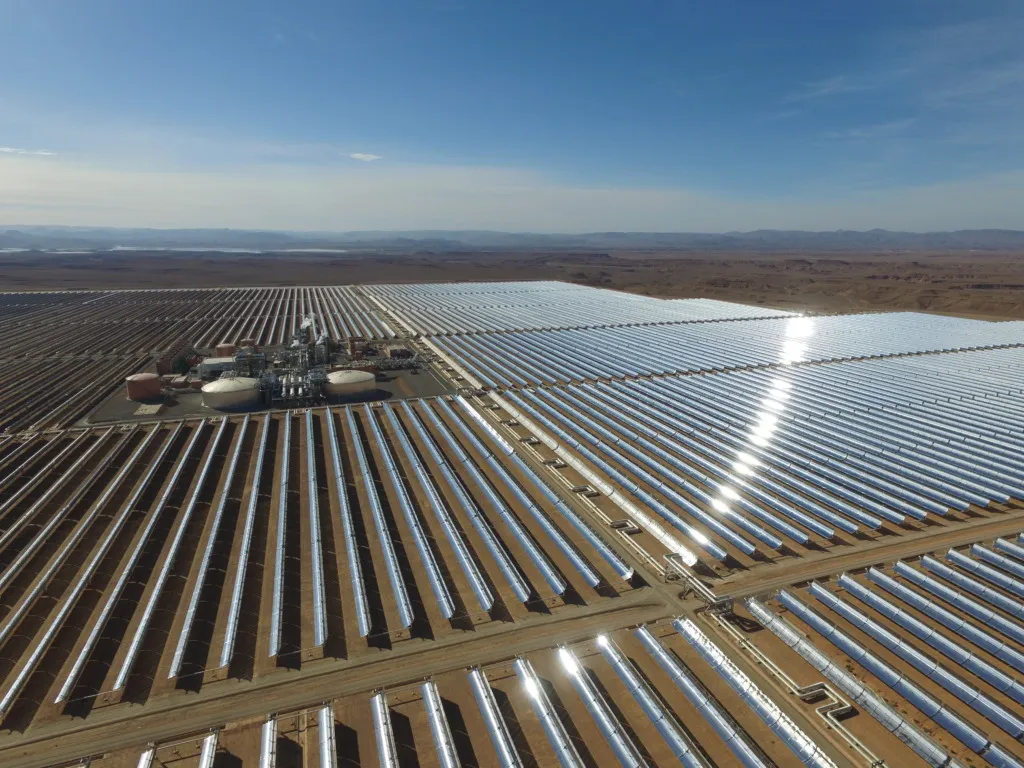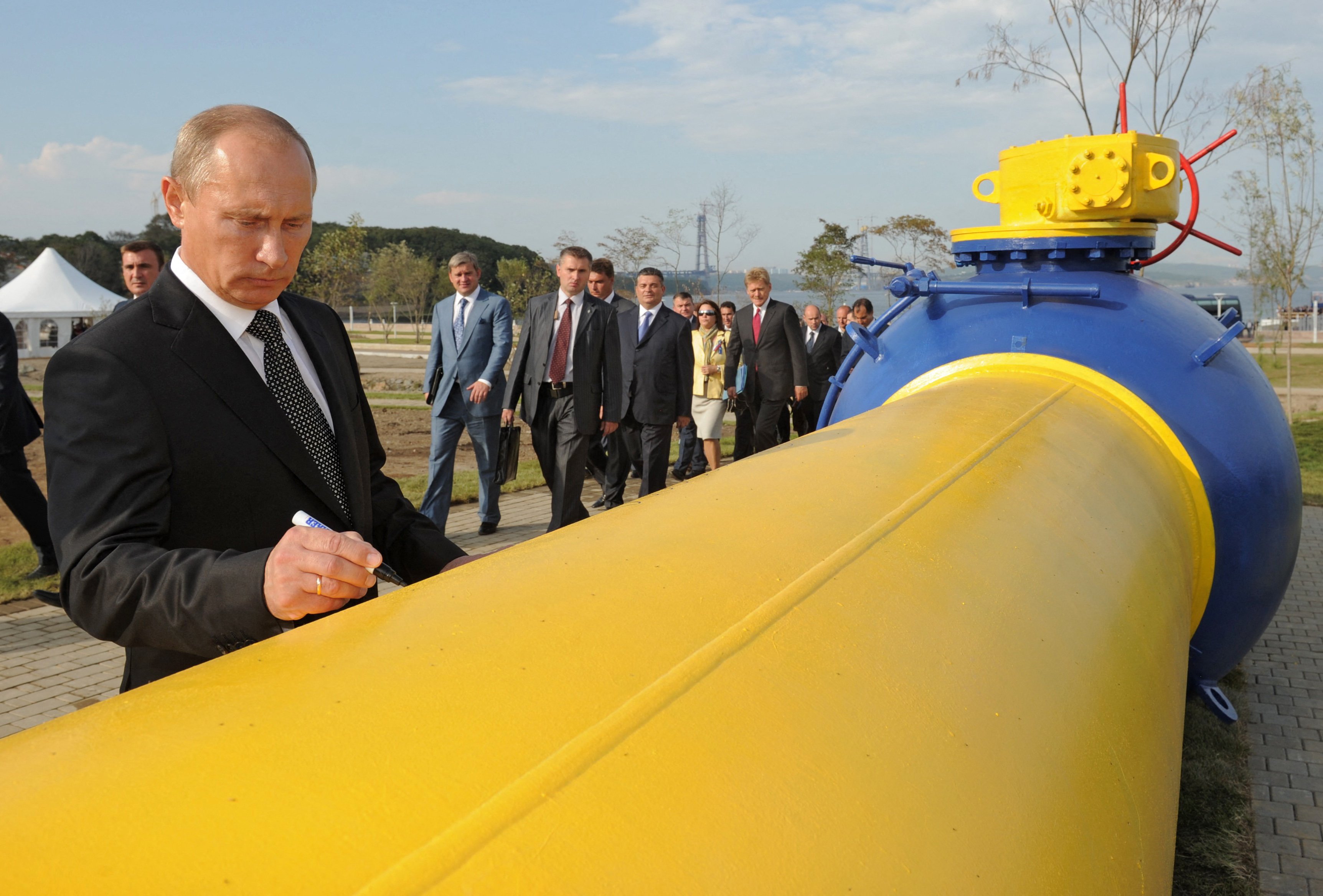In the grim weeks since Vladimir Putin launched his war against Ukraine, Europe has finally woken up to the reality that it needs to kick its addiction to Russian fossil fuels – and fast.
Europe is still feeding Putin’s economy – and, indirectly, his war machine – with hundreds of millions of euros every day in exchange for oil and gas. These payments are clearly undermining the effect of the EU’s own sanctions against Russia. And the Kremlin’s threat to cut off gas to countries that refuse to pay in roubles raises the prospects of Europe’s cities being plunged into darkness and its industries grinding to a halt.
As a result, delegations from European capitals have been scouring the world for new sources of energy supplies – both to quench their immediate need for gas from anywhere but Russia, and to realise their ultimate vision of an economy built on green power.
At present, only two African countries supply substantial quantities of gas to Europe. Algeria provided around 8% of EU gas imports last year, while Nigeria accounted for another 2%. But with European officials scrambling to line up energy deals, the crisis provides a clear opportunity to increase exports.
NJ Ayuk, executive chairman of the African Energy Chamber, says that “there has been a big, big mindset change” since the start of the war. “We’ve been invited to Berlin, to Paris, to Brussels. We have had various communications and various bilateral discussions with energy ministers from at least nine European countries, where we’ve had really fruitful conversations. This has never happened in the past.”
Italy leads race for African gas
Europe’s sudden enthusiasm for developing commercial relations with African gas suppliers is most visible through the work of Italian diplomats, who have collaborated closely with Eni, the national oil and gas giant. Since March, Italy has reached supply agreements with countries including Angola, Congo-Brazzaville, Algeria and Egypt. Under one such deal, Eni will bring an LNG project off the coast of Congo onstream next year. This will deliver up to 4.5 bn cubic metres of gas to Italy – around one-sixth of the level the country currently imports from Russia.
Germany, which lacks an equivalent of Eni, a powerful national oil and gas company with an extensive existing presence in Africa, has been much slower to engage. Khadi Camara, senior manager for energy at the German-African Business Association, says that for Berlin, “Africa is not at the top of the list.” She points out that Robert Habeck, minister for economic affairs and climate action, is yet to visit Africa this year.
Habeck’s apparent neglect of Africa may reflect the reality that while the continent is set to double gas production over the next decade as deepwater developments come online, few African gas fields have the capacity to quickly raise output. Mozambique, for instance, is set to become one of the world’s most important gas producers, but two giant deepwater fields off the north coast of the country are unlikely to start producing before around 2026.
One smaller, but still significant project that could soon contribute to Europe’s gas needs is the Tortue development straddling the maritime boundary between Senegal and Mauritania. It will start delivering gas next year. Another is the Hilli Episeyo project in Cameroon, operated by Perenco. The Anglo-French company confirmed to African Business that it plans to increase production from the project in 2023, “pending a final geoscience review.”

The company’s spokesperson added that the gas will be sold through a trading company, which means that Perenco has “no control” over whether it will be ultimately sold to the European market. This points to the fact that European off-takers must compete in a competitive international market if they want access to African gas.
Indeed, Egypt is an increasingly important producer of LNG, notes Andrew Freeman, senior analyst for North Africa and the Middle East at strategic consulting firm Control Risks. But, he says, “China purchases Egyptian LNG at more competitive rates, and has done throughout the pandemic. Post-Covid economic recovery means that Egypt and others are likely to prioritise individual profitability over the needs of the EU.”
Pipeline pipedream?
A ramp-up in gas flows from Africa to Europe also depends on improved infrastructure. Existing gas pipelines connect Algeria with Spain and Italy, though one pipeline that runs through Morocco has been closed since last November because of a diplomatic stand-off between Algiers and Rabat. Africa’s other gas producers only export LNG.
That could change if the Trans-Saharan Gas Pipeline, which would take gas from Nigeria north through Niger and into Algeria, where it could be re-exported to Europe, comes to fruition. Ayuk insists that the completion of the pipeline can and should be fast-tracked. “We are the generation that built vaccines in less than a year,” he says. “You can’t tell me that we can’t build a pipeline within a year.”
Others are far less sanguine. Agwu Ojowu, a consultant at advisory firm Africa Practice, notes that the pipeline would run through “ungoverned land plagued with banditry and terrorist activities.” He adds that a section of the pipeline already being built through Nigeria is “significantly behind schedule.” Moreover, unless Nigeria invests in the development of new gas fields, the pipeline will effectively be a white elephant. At present, says Ojowu, “even if there was a pipeline linking Nigeria to Europe, the country lacks the spare capacity to export significantly more gas to Europe.”
There are signs that exploration and production will receive new momentum as a result of both higher gas prices and the need for Europe to replace Russian supply. Ayuk tells us that several countries are on the cusp of launching licensing rounds. “There is a new drive for exploration,” he says, noting that interest in acquiring acreage has increased considerably compared to a year ago, including even in frontier markets such as Sierra Leone which do not currently produce oil or gas.
Green challenge
Yet there is a risk that new gas developments could become ‘stranded assets’, given that demand for gas may have declined substantially by the time they are ready to serve the European markets.
Indeed, while the EU desperately needs new sources of gas if it wants to keep the lights on without the help of Russia, it is simultaneously trying to wean itself off fossil fuels altogether. The EU is committed to reaching net zero greenhouse gas emissions by 2050. Major investments in gas infrastructure cannot be easily squared with this objective.
On the other hand, the EU is prioritising the development of “renewable natural gas” – including biomethane and green hydrogen. These fuels, at least in theory, are largely interchangeable with conventional natural gas. It may be possible to transport green hydrogen, which is produced by separating water into hydrogen and oxygen using renewable energy, through existing pipeline infrastructure. Alternatively, it could be delivered by ship as green ammonia.
Demand for green hydrogen opens an opportunity for projects such as the Trans-Saharan Gas Pipeline. “Whatever kind of gas infrastructure you put in right now, you want to make sure it is compatible with hydrogen,” says Ayuk. “It’s a great boost for Africa that you can build gas infrastructure that you can use for Africa’s energy transition and to provide power in Africa – because you still have 600m people without any access to electricity – but at the same time, you can convert that into infrastructure that brings in green hydrogen.”
Indeed, the immense potential for wind and solar across multiple African countries makes the continent a potential leader in the race to produce green hydrogen and green ammonia at scale – a fact that has not gone unnoticed in European capitals.
Andreas Cremer, director of infrastructure and energy for Africa and Latin America at DEG, the German development finance institution, notes that Africa could emerge as a significant green hydrogen exporter. “North African countries would have the lowest transport costs as intercontinental pipelines already exists,” he says. “Countries in southern Africa such as Namibia and South Africa may also play a significant role due to their political stability and favourable conditions for renewable energy.”
Solar megaprojects redraw energy map
Then there is the possibility that vast volumes of renewable energy, particularly solar power, could be generated in Africa and exported via long-distance electricity cables to Europe.
“Many parts of Africa, especially North Africa, are blessed with very favourable conditions for solar power generation,” says Holger Rothenbusch, head of the infrastructure and climate group at British International Investment, the UK’s development finance institution. “We did a very rough calculation and found that solar PV projects covering less than 0.5% of the area of the Sahara would be enough to supply the entire power consumption of Europe and Africa combined if adequate transmission [and] energy storage capacity was available.”
The electricity grids of Morocco and Spain are already connected, meaning that solar power is already exported to Europe from Africa. But the extraordinary potential of solar energy in Africa has given rise to a number of truly gargantuan schemes over the past two decades.
The Desertec project, first put forward by a consortium of mostly German investors in 2009, would have involved a belt of solar and wind farms stretching across the Sahara and the Middle East. These sites would have exported electricity to Europe – at a cost of €400 bn. The scheme effectively collapsed within four years, partly due to the massive cost and complexity, along with technical obstacles that could not be overcome at the time.
Progress has since been made in transmission technology and the cost of constructing solar farms has declined. J. Grant Hauber, energy finance analyst at the Institute for Energy Economics and Financial Analysis, says that solar exports from Africa to Europe are “technically feasible” but schemes must answer questions over their project economics.

“For any such export project to be feasible, it would require great scale – in the multi-billion euro range,” he says. “This is due to the cost of the transmission interconnection infrastructure that would need to be constructed; you cannot have an incremental approach to this.”
The solar megaprojects that are once again coming into fashion in North Africa certainly cannot be accused of lacking scale or ambition. One project, known as Xlinks, aims to generate enough electricity to power 7m homes through wind and solar energy in Morocco. The power would go straight to the UK via the world’s longest transmission cable. The TuNur and Elmed schemes in Tunisia, meanwhile, plan to deliver electricity to Italy via much shorter transmission lines.
Xlinks claims it will be serving the UK by 2027, while TuNur says it will deliver electricity to Italy the following year. Such timelines may be taken with a pinch of salt, given that any infrastructure megaproject is always vulnerable to lengthy delays.
Rothenbusch admits that BII has “found that infrastructure development in Africa can be a slow process given the number of stakeholders involved.” But he strikes an optimistic note, noting that the Benban Solar Park in Egypt, the largest existing facility in Africa, was completed just over two years after its financial close. “Solar is generally well-suited to rapid deployment since it is now a well-proven technology with a highly competitive market for components and construction services.”
Can exports be justified?
Aside from the logistical and other practical challenges, there is a fundamental question over how Africa should use its massive potential for solar and other forms of energy. UN figures indicate that 600m people in Africa lack access to electricity, while 900m go without clean cooking fuel. Can exporting power to Europe be justified in this context?
A decade ago, Desertec’s backers attracted much criticism over the perception that their scheme would simply send Africa’s energy to European consumers, with Africa’s population seeing few benefits. Daniel Ayuk Mbi Egbe, chairperson of the African Network for Solar Energy, an NGO, was among those to criticise the “green neo-colonialism” that he says seemed to be inherent in Desertec’s vision.
Solar project developers are indeed now making more effort, at least from a public relations perspective, to outline the benefits to the host countries. TuNur, for instance, says that it plans to participate in tenders for solar projects that will serve the local market.
But Rothenbusch warns that it may not always be realistic for solar development to serve both European and African markets simultaneously. He notes that African power utilities “are not always bankable as off-takers,” meaning that “the set of investors that would be building projects for export is not necessarily the same as those who would be comfortable taking the higher risks needed to build projects for local use.”
Egbe says that the schemes currently being developed must take an approach that brings benefits to Africa. “I believe, and I hope, that the project promoters must have learned from the Desertec mistake,” he says. Any solar development that intends to export to Europe “should be a win-win solution – and also contribute to the development of Africa.”
Want to continue reading? Subscribe today.
You've read all your free articles for this month! Subscribe now to enjoy full access to our content.
Digital Monthly
£8.00 / month
Receive full unlimited access to our articles, opinions, podcasts and more.
Digital Yearly
£70.00 / year
Our best value offer - save £26 and gain access to all of our digital content for an entire year!
 Sign in with Google
Sign in with Google 



